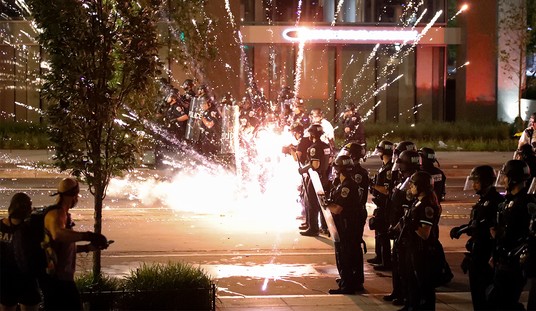Some argued that the elections last Tuesday showed that empathy wins in political battles. Maybe Harry Reid should have thought of that before launching an effort to change the filibuster rules. Despite having a majority of the Senate and an even larger majority in the next session of Congress, Reid’s coming up short of a majority for his changes:
Democrats don’t have the 51 votes they need in the Senate to change filibuster rules that could make it harder for the GOP minority to wield power in the upper chamber.
Lawmakers leading the charge acknowledge they remain short, but express optimism they’ll hit their goal.
“I haven’t counted 51 just yet, but we’re working,” said Sen. Tom Udall (D-N.M.), a leading proponent of the so-called constitutional or “nuclear” option, in which Senate rules could be changed by a majority vote. …
The problem for Udall and other supporters of filibuster reform is that many veteran Democratic senators remember when the filibuster was a useful tool in their years in the minority.
That’s certainly one problem. Another and related problem is that they may find themselves in the minority sooner rather than later. The odds of that declined after the unexpected Republican losses on Tuesday, but Democrats will still have to defend more seats than the GOP in the midterms — and the President generally loses seats in the House and Senate in second-term Congressional elections:
Republicans have whiffed in two straight Senate cycles but will get a third swing at the majority in 2014. It will take a lot more than charm, though, to put them back in power.
Twenty Senate Democrats will have to defend their seats that year, while just 13 Republicans will be up for reelection. At least six of the Democrats represent red states — places like Arkansas, Louisiana and South Dakota — and are seen as ripe GOP pickings. Retirements could expand the map for the party. …
The task of flipping the Senate in 2014 got a lot harder after Democrats nearly ran the table last week, picking up two seats when breaking even would have been a coup. Republicans would probably need a wave of 2010 proportions to get there.
At this early vantage point, the six most vulnerable Democrats are Sens. Mark Begich of Alaska, Mary Landrieu of Louisiana, Mark Pryor of Arkansas, Kay Hagan of North Carolina, n. Tim Johnson of South Dakota and Max Baucus of Montana.
Democrats won’t have the advantage of Barack Obama and his OFA turnout machine in 2014, either. Without Obama on the ticket in 2010, Democrats lost a huge wave election, even with Republican disarray that may have kept the GOP from taking control of the Senate. The possibility of needing the very minority protections that Reid wants to dilute or eviscerate has Democrats feeling mighty empathetic at the moment.
That has Udall talking with Republicans about a modified set of reforms with broader appeal, according to The Hill. Had Reid done that in the first place, he may have been able to craft a set of rules that would retain minority rights while limiting the abuses of both parties over the last generation in the Senate. Republicans certainly complained bitterly about those abuses when they had the majority — and when Reid himself led those abuses — and almost ended up gutting filibusters on judicial nominees in 2005. Without bipartisan reform, however, The Hill reports that GOP leadership promises a partisan war on the entire Democratic agenda if Reid pushes through this nuclear option.








Join the conversation as a VIP Member